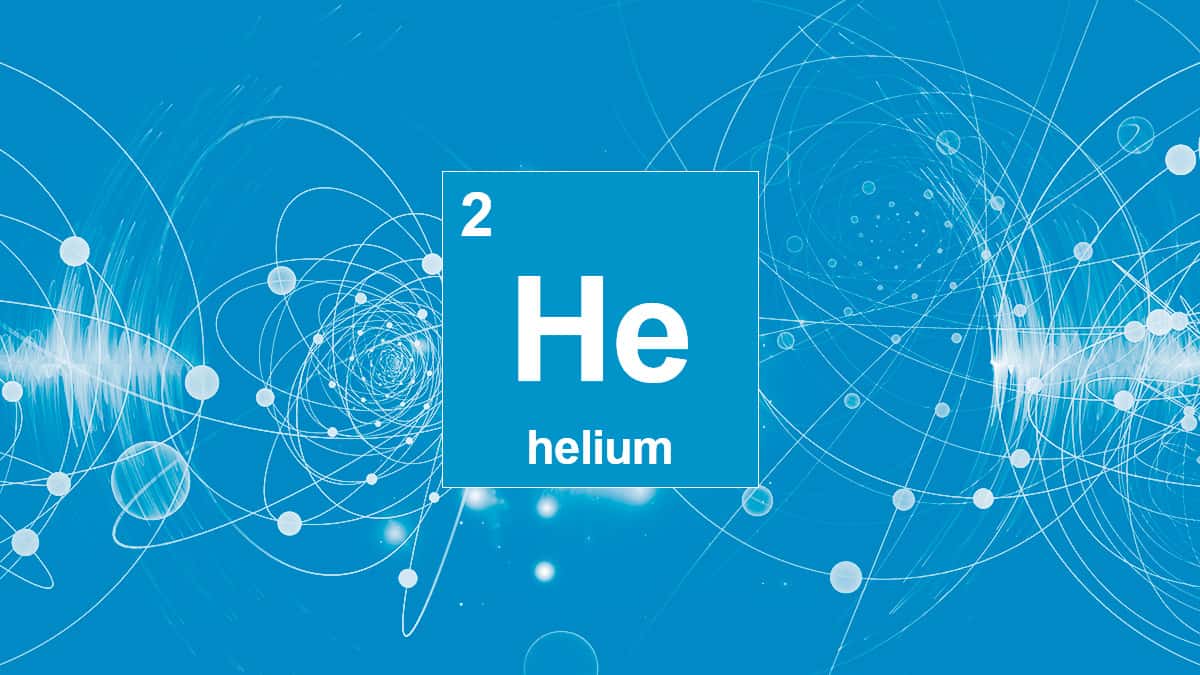Helium is combined with oxygen to create a nitrogen free atmosphere for deep sea divers so that they will not suffer from a condition known as nitrogen narcosis. Liquid helium is an important cryogenic material and is used to study superconductivity and to create superconductive magnets.
- The tech industry has a lot of interesting uses for helium, including.
- Helium has raised equity funding from some of the most prominent Venture Capital (VC) firms in the world including Khosla Ventures, FirstMark Capital, GV (formerly Google Ventures), HSB/MunichRe Ventures, Union Square Ventures, Multicoin Capital, and others. Learn more about Helium.
The President’s Executive Order on Protecting the Federal Workforce, and those interacting with us, requires all Federal employees, contractors, and others in Federal buildings and on Federal lands to wear masks, maintain physical distance, and adhere to other public health measures identified in the CDC guidelines. Mask up and help BLM continue to ensure continuity of service, meet the mission and serve our communities. Do your part to ensure continuity of government services and put COVID-19 behind us.
The latest information on changes to facilities and services in response to Coronavirus (COVID-19) is available here.
View the alert: BLM New Mexico COVID-19 Information Update March 19, 2021About Helium
What is helium?
Helium is the second most abundant element in the universe after hydrogen. It is a colorless and odorless inert gas that has unique properties.
What makes helium so unique?
Of all the elements, helium is the most stable; it will not burn or react with other elements. Helium has the lowest melting and boiling points. It exists as a gas, except under extreme conditions. At temperatures near absolute zero, helium is a fluid; most materials are solid when cooled to such low temperatures.
Where does helium come from?
Helium is a non-renewable natural resource that is most commonly recovered from natural gas deposits. Geologic conditions in Texas, Oklahoma, and Kansas make the natural gas in these areas some of the most helium-rich in the world (with concentrations between 0.3 percent and 2.7 percent).
What is helium used for, and why is it a strategic natural resource?
Perhaps the most familiar use of helium is as a safe, non-flammable gas to fill party and parade balloons. However, helium is a critical component in many fields, including scientific research, medical technology, high-tech manufacturing, space exploration, and national defense. Here are a few examples:
- The medical field uses helium in essential diagnostic equipment such as MRI’s. Helium-neon lasers are used in eye surgery.
- National defense applications include rocket engine testing, scientific balloons, surveillance craft, air-to-air missile guidance systems, and more.
- Helium is used to cool thermographic cameras and equipment used by search and rescue teams and medical personnel to detect and monitor certain physiological processes.
- Various industries use helium to detect gas leaks in their products. Helium is a safe tracer gas because it is inert. Manufacturers of aerosol products, tires, refrigerators, fire extinguishers, air conditioners and other devices use helium to test seals before their products come to market.
- Cutting edge space science and research requires helium. NASA uses helium to keep hot gases and ultra-cold liquid fuel separated during lift-off of rockets.
- Arc welding uses helium to create an inert gas shield. Similarly, divers and others working under pressure can use a mix of helium and oxygen to create a safe artificial breathing atmosphere.
- Helium is a protective gas in titanium and zirconium production and in growing silicon and germanium crystals.
- Since helium doesn’t become radioactive, it is used as a cooling medium for nuclear reactors.
- Cryogenics, superconductivity, laser pointers, supersonic wind tunnels, cardiopulmonary resuscitation pumps, monitoring blimps used by the Border Patrol, and liquid fuel rockets all require helium in either their manufacture or use.
For many of these applications, there is no substitute for helium. Helium is a non-renewable resource found in recoverable quantities in only a few locations around the world, many of which are being depleted. Accordingly, the U.S. has important economic and national security interests in ensuring a reliable supply of helium.
RELATED CONTENT
What is the Federal role in managing this strategic resource?
The BLM operates and maintains a helium storage reservoir, enrichment plant, and pipeline system near Amarillo, Texas, that supplies over 40 percent of domestic demand for helium. The BLM supplies crude helium to private helium refining companies which in turn refine the helium and market it to consumers.
The BLM is also responsible for evaluating the Nation’s helium-bearing gas fields and providing responsible access to Federal land for managed recovery and disposal of helium. The Federal Helium Program is administered by the BLM’s Amarillo Field Office under the authority of the Helium Stewardship Act of 2013.
How is the Federal Helium Program Funded?
The Federal Helium Program operates using non-appropriated funds (i.e. money generated from the sale and storage of helium and other related non-tax revenues). With crude helium auctions and sales stopping October 1, 2018, program revenues for FY 2019 declined to $63 million dollars. After funding operations, the program continues to return about $30 million dollars to the U.S. Treasury.
Last updated Fri, Apr 23, 2021 1:48 PM
Description rank: 91type: coin
Helium (HNT) is a cryptocurrency. Users are able to generate HNT through the process of mining. Helium has a current supply of 53,346,182.075 with 48,712,218.115 in circulation. The last known price of Helium is $1.48 USD and is down -11.53% over the last 24 hours. It is currently trading on 8 active market(s) with $3,149,442.939 traded over the last 24 hours. More information can be found at https://www.helium.com/.
Categories
Features
Helium Status Scores
There are a number of factors which contribute to the overall calculation for a development score. We analyze the GitHub repository and assess factors such as activity, commit, vulnerabilities and developer community feedback (forks, stars etc).

There are a number of positive factors which may indicate this project actively in development these include; extremely high stars, extremely high watchers, extremely high mentionable users, extremely high repo stars, daily repo updates.
But there are also a number of negative factors which lower the score; low forks.
The sentiment score indicates how well the wider community regards the project. We analyse social media platforms such a Reddit, Twitter etc to access if the community is talking positively or negatively about a project.
There is a negative factor - The overall sentiment is very low - to indicate this project is not well-regarded positively in the community.
More times than often community is the back bone and driving force of any project. An engaged community can steer a project to the moon and conversely a disengaged community can drive into a brick wall.
There are a number of positive factors which may indicate this project has an active and engaged community these include; extremely high reddit articles, extremely high hashtag tweets, extremely high gitHub account watchers.
But there are also a number of negative factors which lower the score; very poor search result count.
The awareness score indicates how well known the project is outside the cryptocurrency community. For a project to moon, we would expect to see it mentioned in the main stream media, non-cyrpto websites and publications. We analyse the web to judge how well know a project is and therefore how much exposure it gets in the mainstream.
There are a number of negative factors which might tell us this project is not well known outside the crypto community these include; no search result total, no overall news articles, no primary saved news articles, no all saved news articles.
Using a number of factors such as age and reputation we give each project a credibility rating. The higher the credibility the more confident we are that our scoring is as accurate as possible. The older a project is the more data we have to analyse and the more confidence we have in our scoring. The flip side of this the newest projects carry the most risk.
Neutral points - below average project age (released Jun 5, 2020).
Ultimately money talks - does this project have high liquidity or is no one buying it all? Even if all the other factors look good - you can only make money if someone will buy it off you.
Positives - extremely high USD 24hr volume - may indicate this project has good liquidity.
Helium Web Presence
Helium Source Code Activity Flags
Helium
Helium
1086116036416070The Helium project has 74 active source code repositories.
The world's first peer to peer wireless network.
There have been 244 commits in the last 28 days.
The most recent commit was Thu, Apr 22, 2021 11:42 PM
Helium News

Final Checks
No Missing Data
Is Helium Diatomic
No Red Flags
Look through the Helium checklist...
Three Uses Of Helium

Is Helium A Noble Gas
Safety Suggestions
Helium Explorers
Is Helium Bad For You
Rate And Review Helium
